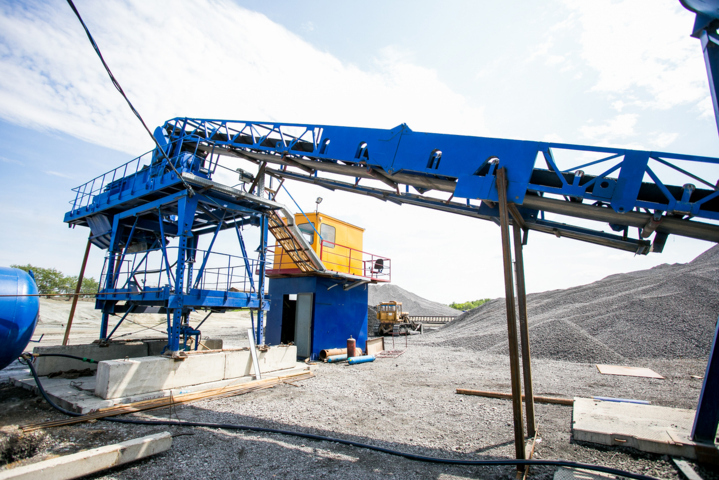Explore the vital technical skills, knowledge, and competencies essential for excelling in sales within the Surface Mining Industry.
Did you know that surface mining is responsible for extracting two-thirds of the world’s solid minerals? It is the procedure used for acquiring sand, gravel, clay, coal, iron, copper, aluminum, phosphates, and crushed stones among many others. It is because of the surface mining industry that construction companies are able to obtain raw materials for building properties, including houses, commercial buildings, and industrial infrastructures.
What does this mean for sales professionals looking to enter the surface mining industry? With the high demand for surface mining equipment and products throughout the world, there are ample job opportunities and potential for significant career growth in this sector. In this article, let us discuss in detail what surface mining is and what sales in the surface mining industry look like. We hope to guide and assist sales professionals like you who are thinking about pursuing a career in this dynamic sector.

What is Surface Mining?
Surface mining is a method of extracting minerals and other geological materials from the surface of the earth. Unlike underground or subsurface mining where miners dig underground to obtain minerals, this mining technique involves the removal of overlying rock or soil to access the desired resource.
According to Britannica.com, more than two-thirds of the world’s annual mineral production is acquired through surface mining, enabling the extraction of coal, sand, clay, metals, gemstones, limestone, and other materials. For lower-grade resources that are typically found closer to the earth’s surface, surface mining is the ideal mining technique. It’s also common for extracting rocks, stones, and sand since these materials often lie just on the surface of the ground.
In a surface mining operation, the vegetation and topsoil are cleared from the mining area. Then, large machinery, such as bulldozers, excavators, and dump trucks, are used to remove the overburden, the layer of rock or soil covering the mineral deposit. Once the overburden is removed, the mineral deposit is extracted and processed for further use or refinement.
Surface Mining vs. Underground Mining
Surface mining and underground mining are two distinct methods of extracting minerals and other materials from the earth. If you are looking to pursue a career in the mining or minerals industry, whether as a sales professional or a business development head, it is important that you be familiar with the difference between these mining techniques.
Surface Mining
As we’ve already discussed above, surface mining involves the removal of overlying rock or soil to access the minerals and materials that are relatively close to the surface of the earth. These may include sand, gravel, clay coal, metals, gemstones, and other natural materials. It includes various methods such as open-pit mining, quarrying, and strip mining.
Surface mining generally has lower operating costs compared to underground mining due to fewer infrastructure requirements. It can also extract larger volumes of material in a shorter period compared to underground mining. Furthermore, surface mining is typically safer for workers as there is less risk of cave-ins, gas explosions, and other underground hazards.
Underground Mining
Also known as subsurface mining, underground mining is another mining technique that involves the extraction of minerals or ores from beneath the earth’s surface through tunnels and shafts. It is commonly used and highly effective for mineral and metal deposits that are buried at greater depths beneath the surface, such as coal, lead, limestone, salt, potash, and other precious metals and base metals.
As with surface mining, underground mining also uses several methods. These include room and pillar mining, longwall mining, and block caving. According to research, underground mining is safer for the environment and a more sustainable approach as it minimizes surface disturbance and habitat destruction. However, it presents various safety hazards for miners and workers because it poses dangers of cave-ins, gas emissions, and machinery accidents.
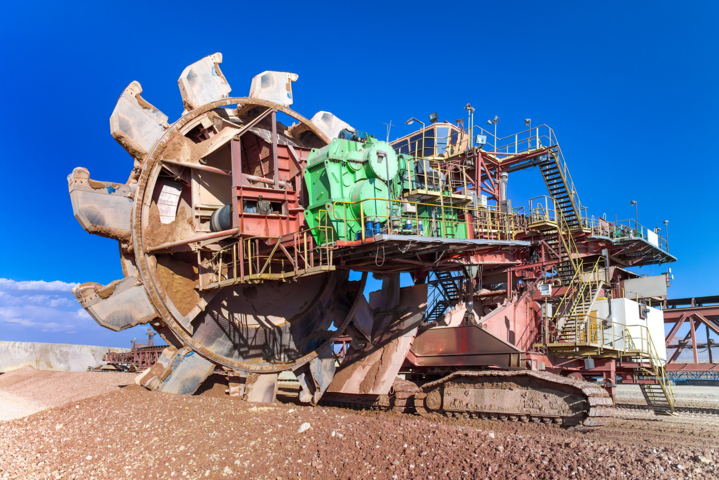
5 Main Types of Surface Mining
Depending on the mining company you are applying to, you may have to deal with a particular type of surface mining operation, equipment, or services they offer. Thus, if you are planning to pursue a sales career in the surface excavation industry, you need to familiarize yourself with the different types of surface mining.
Strip Mining
Strip mining is a surface mining technique primarily used for extracting coal, lignite, phosphate, and other sedimentary deposits that are relatively close to the earth’s surface. The process involves the systematic removal of overlying layers of soil, rock, and vegetation in sequential strips to expose the mineral deposit underneath. In this type of surface mining, large earth-moving equipment is used to remove the overburden efficiently, including draglines, shovels, and trucks.
Open-pit Mining
Open-pit mining is a widely used surface mining technique for extracting minerals such as copper, iron, gold, and diamonds that are located in deep deposits below the surface. It involves the excavation of a large open pit or borrow, which extends horizontally and vertically into the earth’s crust. Open-pit mines are typically massive in scale and can reach depths ranging from tens to hundreds of meters. Because of this, open-pit mining often requires significant infrastructure for successful execution, including haul roads, processing plants, and waste disposal facilities.
While open-pit mining is highly efficient and cost-effective, it can have notable environmental impacts. This type of surface mining is known to cause habitat fragmentation, air and water pollution, and land degradation which are harmful to both the environment and health of community members.
High-wall Mining
Another type of surface mining is high-wall mining. It is a specialized surface mining technique used to extract coal from the high walls of open-cut mines after conventional mining methods have reached their maximum depth.
In high-wall mining, remotely controlled continuous miners are deployed to extract coal from exposed coal seams on the vertical walls of the mine pit. These continuous miners are equipped with cutting heads and conveyor systems that can operate autonomously along the face of the high wall. High-wall requires specialized equipment and expertise to ensure safe and efficient operations.
Quarrying
Quarrying is a surface mining method used to extract construction materials, such as limestone, sandstone, and granite, from natural rock formations or deposits near the earth’s surface. The process involves the removal of rock from an open pit or quarry face using various techniques, including drilling, blasting, and mechanical excavation.
This type of surface mining operation requires careful planning and management to minimize environmental impacts. Reclamation of quarried land is also an essential aspect of sustainable quarrying practices, involving the restoration of vegetation and habitat to mitigate the effects of mining activities on the landscape.
Dredging
Lastly, dredging is another surface mining technique used to extract minerals, sediments, and other materials from the bottom of rivers, lakes, and oceans. It is carried out using specialized vessels called dredges, hence the name “dredging.” These tools are equipped with scooping or suction devices known as dredge heads. These dredge heads are lowered to the bottom of the water to excavate and remove sediment, sand, gravel, and minerals from the seabed or riverbed.
Dredging is commonly used for a variety of purposes, including navigational channel maintenance, land reclamation, beach nourishment, and mineral extraction.
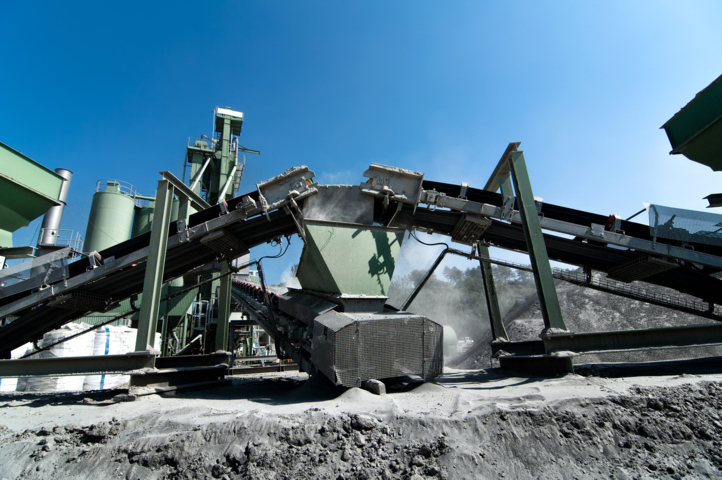
Sales in the Surface Mining Industry
The surface mining and excavation industry plays a vital role in various aspects of modern society and the global economy. Whether directly or indirectly, it is responsible for resource and mineral extraction, supply of raw materials in the construction sector, infrastructure development, energy production, and global trade and commerce.
In the US alone, surface mining accounts for about 90% of the rock and mineral resource mining and production. This means that the industry is here to stay and will continue to grow over the years. This also translates to increasing job opportunities within the sector, opening many surface mining job positions to job seekers in the US and all over the world.
So whether you wish to pursue a sales job or you are looking to grow your career in business development within this dynamic industry, you have to learn everything there is about sales in the surface mining and minerals industry.
One of the world’s leading technology providers in the mining industry is TAKRAF, offering innovative technological solutions for mining and bulk material handling. Focusing on specific areas within the technological chain of mining and minerals processing, the company is committed to environmental and social sustainability in its business interactions, adopting a “Zero Harm” approach as part of its sustainable operations. The TAKRAF brand is popularly known for overburden removal, raw material extraction, comminution, conveying, loading/unloading, processing, homogenizing, blending, storage and final loading for onward shipment.
What Do Surface Mining Sales Professionals Sell?
If you are a sales professional and you are planning to apply for a job in a surface mining company—whether manufacturer, distributor, or service provider—, it is essential to know the different products and services you will be selling or promoting for the company. Below are some of the common products and services they sell:
- Mining and material handling equipment, such as:
- Excavators
- Haul trucks
- Bulldozers
- Loaders
- Drills
- Crushers
- Conveyor systems
- Replacement parts, components, and accessories for mining equipment, such as:
- Hydraulic cylinders
- Engine parts
- Bearings
- Conveyor belts
- Tires
- Cutting tools
- Mining consumables, such as:
- Explosives and blasting agents for rock fragmentation
- Lubricants and grease for equipment maintenance
- Fuel and lubricants for machinery
- Chemicals for processing minerals
- Safety equipment and services, such as:
- Personal protective equipment (PPE), including helmets, safety glasses, gloves, and boots
- Safety training programs
- Safety audits
- Consultancy services
- Workplace safety and compliance coaching
- Technology solutions, such as:
- Advanced monitoring and control systems for equipment operation
- Fleet management software for optimizing vehicle utilization and maintenance scheduling
- Drone-based surveying and mapping services
- Remote monitoring solutions for predictive maintenance and performance optimization
- Consulting and engineering services, such as:
- Mine planning and optimization
- Mine site evaluation and design
- Process improvement
- Feasibility studies
- Environmental impact assessments
- Operational audits for efficiency and productivity
- Environmental solutions, such as:
- Land reclamation
- Water treatment
- Dust suppression
- Waste management
What sales professionals sell for or to a surface mining company is not limited to the examples above. The exact products, services, and solutions they sell depend entirely on the nature and business model of the company.
Functions and Responsibilities: What Do Surface Mining Sales Professionals Do?
Surface mining sales professionals play a crucial role in providing mining companies and/or their customers with the products, services, and expertise needed to optimize their operations, maximize productivity, ensure safety, and minimize environmental impact.
Below are some of the primary functions and responsibilities of a surface mining sales professional:
Identify potential clients and prospects within the surface mining industry.
Build and maintain relationships with existing clients and understand their needs and requirements to tailor sales strategies and offerings.
Conduct product presentations and demonstrations to showcase equipment, technology, or services to prospective buyers.
Collaborate with other teams or departments to tailor solutions to clients’ specific needs, including product development, marketing, engineering, and technical teams.
Develop and implement strategic plans to meet sales targets and objectives.
Prepare and present proposals, quotes, and contracts to clients.
Negotiate terms and pricing agreements with clients.
Coordinate with internal teams to ensure timely delivery of products and services.
Provide after-sales support and assistance and address any issues or concerns raised by clients.
Manage and maintain the company’s CRM software and other sales tools, if applicable.
Stay updated on industry trends, market developments, and competitor activities.
Attend industry conferences, trade shows, and networking events to expand professional network and acquire new leads.
Maintain accurate records of sales activities, including customer interactions, orders, and sales forecasts.
Collaborate with the marketing team to develop promotional materials and campaigns targeting the surface mining industry.
Continuously seek opportunities to upsell or cross-sell additional products and services to existing clients.
Participate in training programs to enhance product knowledge, sales skills, and industry expertise.
Create sales reports as needed, prepare analyses and insights, and present them to the management team.
Offer inputs, recommendations, and expertise to the management team on new product or service features based on customers’ needs.
Assist in estimating demand for proposed projects based on market research and consumer trends.
Adhere to company policies, procedures, and ethical standards in all sales activities.
The exact responsibilities of a sales professional in a surface mining company may slightly differ from the list above. Use this only as a guide if you are planning to pursue a sales career in the sales mining industry.
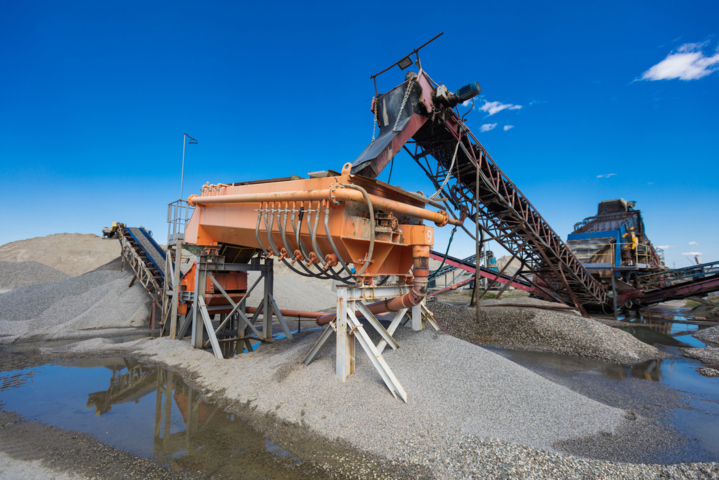
Requirements to Qualify as a Surface Mining Sales Professional
Whether you’re a fresh graduate finding a new job or a seasoned salesperson wanting to grow his career in a new industry, surface mining sales is an exciting and lucrative opportunity filled with potential for professional growth and success. Let’s talk about the requirements needed to become a sales professional in the surface mining industry.
Technical Knowledge
To become an effective salesperson in the surface mining industry, you have to develop, learn, and master the following technical and industry-specific knowledge:
- Mining processes and operations
- Various Types of surface mining techniques
- Various types of mining equipment and machinery
- Geological formations and mineral deposits
- Minerals processing
- Crushing and unloading stations
- Technical specifications and drawings
- Safety regulations and standards in the mining industry
- Environmental considerations and sustainability practices
- Mining software, programs, and apps
- Technology solutions related to mining sales
- Material handling and transportation systems
- Maintenance and repair requirements for mining equipment
- Emerging trends and advancements in the mining industry and technology
- Mining economics
- Cost analysis
By having a good understanding of these technical matters and industry-specific knowledge, you can quickly adapt to the organization’s sales procedures and establish credibility with prospective clients. If you know how to address their specific needs and concerns, you can easily provide them with tailored solutions that effectively meet their requirements.
Skills
Aside from technical knowledge, an effective surface mining sales professional should also possess the following sales skills:
- Relationship building
- Negotiation and persuasion
- Problem-solving and critical thinking
- Comprehensive product knowledge
- Proposal development
- Presentation skills
- Teamwork and collaboration with internal stakeholders
- Time management and organization
- Attention to Detail
- Ethical Conduct
- Ability to follow up and maintain contact
By mastering these skills and combining them with technical expertise, you can become an invaluable asset in promoting and selling mining products, services, and solutions.
Other Competencies
Competencies are a set of skills, knowledge, behaviors, and qualities that will make you even more successful in the role you are pursuing. In the surface mining sales field, the following competencies can help you thrive:
- Adaptability to changing market conditions and client needs
- Resilience and persistence in overcoming sales challenges
- Ability to make a sound independent judgment
- Openness to learning new skills
- Strategic thinking
- Innovation mindset
- Cultural awareness
These competencies, when developed and effectively applied, can significantly enhance your ability to succeed in surface mining sales.
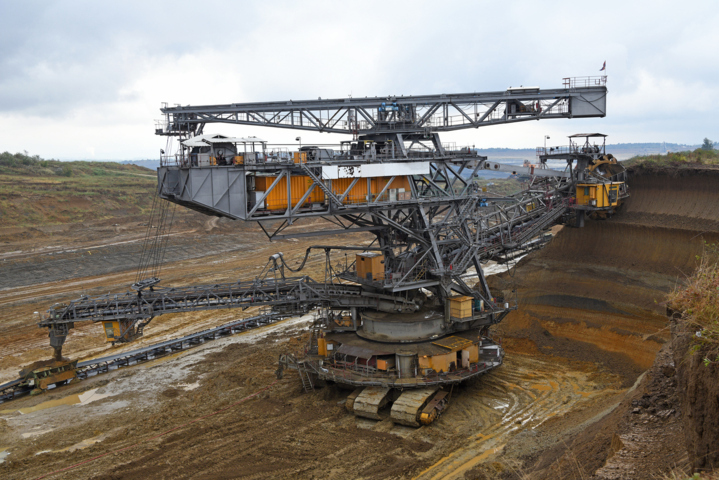
Tips on Selling Surface Mining Products and Services
Surface mining sales is a niche career and selling products and services related to this industry can be significantly different from the typical retail sales. If you want to get a good head start as you pursue a sales career in the mining industry, here are some tips to keep in mind to prepare you for selling mining products, services, and solutions.
Know your products inside and out.
In the mining industry, products can be very technical and industry-specific. To ensure that you will be able to sell and offer them to prospective clients, you have to fully understand what your products are, including their features, capabilities, benefits, and instructions on how to use them effectively.
Showcase your expertise and become a trusted advisor.
Be an expert on the product or service you are selling. However, more than just selling it, build a reputation for being the go-to resource for this particular product or service that you are offering. By demonstrating your knowledge and expertise in surface mining equipment, processes, and industry trends, you position yourself as a trusted advisor who can provide valuable insights and solutions to your clients.
Highlight the value proposition.
Why should buyers choose your products or services over others? What makes your solutions better? Why you? Sales in the surface mining industry can be a good opportunity to showcase and articulate the value proposition of your products and services. Focus on how your offering can improve productivity, efficiency, safety, and profitability for mining operations compared to other similar products or services.
Offer solutions.
Instead of simply pitching products, focus on offering comprehensive solutions that address the unique needs of your prospective buyers. Understand their primary pain points and help them overcome roadblocks by giving them customized advice and recommendations. Give them options on which equipment would better fulfill their needs, what maintenance support or training programs they can benefit from, or which financing options are most ideal for their business.
Highlight the safety and compliance of your products.
Surface mining companies prioritize safety and regulatory compliance. Highlight how your products and services contribute to maintaining a safe work environment and ensuring compliance with industry standards and regulations.

Who is Most Eligible for a Sales Career in the Surface Mining Industry
Sales in the surface mining industry are not for everyone. Just because you are an experienced medical sales representative doesn’t mean you will succeed in the mining industry. It is important to understand that a great fit for the surface mining sales job requires passion, knowledge, and understanding of the industry, as well as the products and services related to it. These include mining and material handling equipment, stockyard machines, wagon tipplers, high-capacity long-distance conveyors, minerals processing, and so much more.
Professionals who come from the following backgrounds are most likely to flourish within this vertical:
- Engineering, especially those with backgrounds in mining, mechanical, civil, or geological engineering, and understand surface mining operations, equipment, and processes.
- Geology, especially those who have a deep understanding of geological formations, mineral deposits, and exploration and processing techniques.
- Sales and Business Development, those with experience in selling industrial equipment, heavy machinery, construction materials, or technical solutions.
- Mining Operations, those with experience working as equipment operators, supervisors, or maintenance technicians.
- Environmental and Regulatory Compliance, those with backgrounds in environmental science, regulatory compliance, and/or sustainability.
- Supply Chain and Logistics, those with experience in supply chain management, logistics, procurement, materials handling, sourcing, transporting, and managing materials and equipment within the mining industry supply chain.
- Technology and Innovation, those with backgrounds in technology, data analytics, innovation, and digital solutions in surface mining operations.
- Finance and Investment, those with expertise in finance, investment, or corporate development that can help with securing funding, evaluating investment opportunities, and managing financial aspects of surface mining projects.
Who is Hiring for this Type of Role?
If you believe you have the skills, competencies, and experience to succeed in surface mining sales, take the next step in your career as a Surface Mining Sales Development Guru. Be a leader in the international industry of surface mining equipment based in Denver, CO.
Apply for the position of Business Development Director – Mining Bulk Material Handling, and be part of a global, financially stable, and product-focused market leader.
Wrapping It Up: Apply for a Surface Mining Sales Job
Surface mining is an important part of modern industry because it provides us with essential resources for construction, manufacturing, energy production, and infrastructure development. As two-thirds of the world’s solid minerals are extracted through surface mining, it gives us the confidence to believe that this dynamic industry is here to stay, providing jobs to both technical workers and sales professionals alike.
If you are a sales professional looking to grow your career, sales in the surface mining industry is a dynamic and rewarding career path that offers immense opportunities for professional development and success. By leveraging your sales skills, technical knowledge, and industry expertise, you can play a pivotal role in providing valuable solutions to mining companies and their customers. Apply for a surface mining sales job now and prove that you are worthy of a successful and fulfilling career in the industry.
At Sales Recruiters Denver, we bring companies and talents together, ensuring a smooth working relationship that helps companies thrive while helping jobseekers pursue their career. Check out the job vacancies we have on our website or submit your resume here to get started with your journey toward your dream sales job.

